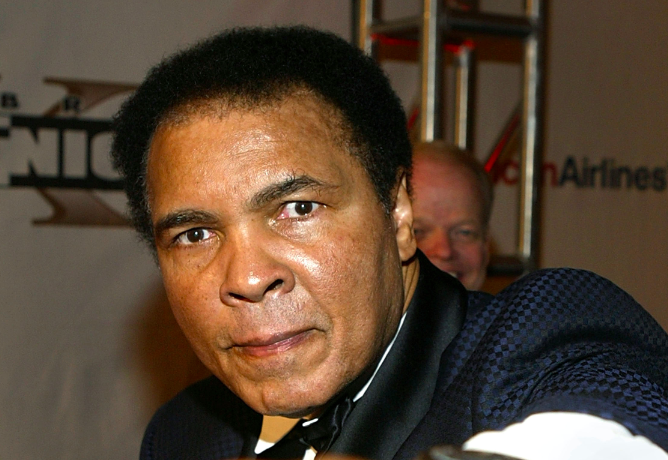What Is Parkinson’s Disease? Legendary Boxer Muhammad Ali Dies At 74

Muhammad Ali’s fight did not end when he retired from boxing in 1981. Three years later, "the Greatest" was diagnosed with Parkinson’s disease, a neurodegenerative brain disorder. It’s chronic and progressive.
There are nearly 1 million people in the U.S. living with the neurological disorder, according to the Parkinson’s Disease Foundation. The cause is unknown, but symptoms can be managed through medication and even surgery. Actor Michael J. Fox and singer Linda Ronstadt are among those who have been diagnosed with the disease.
Parkinson’s is marked by the following symptoms: tremors of the arms, legs, hands, jaw and face; bradykinesia, which means slowness of movement; stiff limbs and weakened balance and coordination.
Parkinson’s occurs when there is the breakdown and death of neurons in the brain, which are vital nerve cells. Some of the neurons carry dopamine, a chemical that sends messages that control movement and coordination. As the disease progresses, less dopamine is produced, and normal movement decreases.
There is no cure for Parkinson’s disease. It is not fatal in itself, but complications can be serious and shorten life span.
Ali's fourth wife, Yolanda Williams, cared for the fighter. She said Parkinson’s made her stronger. “I do believe that I have gotten stronger despite the challenges of being a care partner and care giver,” she said in a 2014 interview. “I’m one who believes that God never gives you a burden to bear that you can’t bear. It might get difficult at times but that’s how inner strength is developed. Also, there is wisdom to be gained in the struggle that we would not acquire otherwise. And sometimes burdens make us realize we are human and need the help of a higher power.”
Ali, born Cassius Marcellus Clay Jr., died Friday at age 74 in a Phoenix hospital.
Follow me on Twitter @mariamzzarella
© Copyright IBTimes 2024. All rights reserved.






















